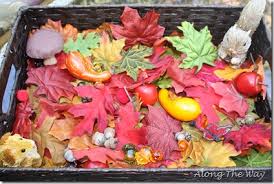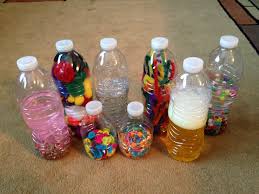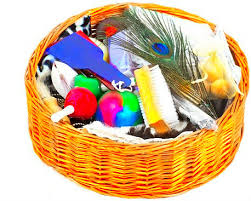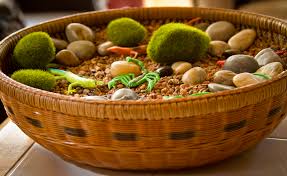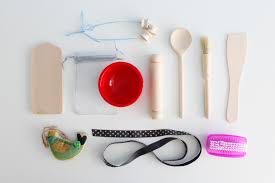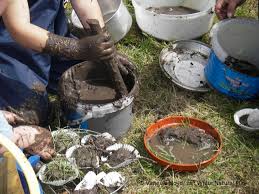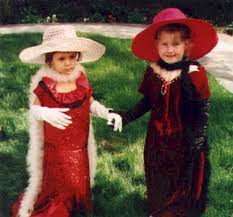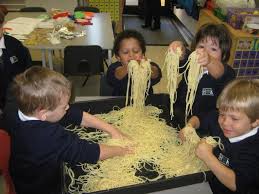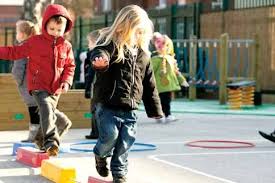Children will play with anything ! Use your imagination and let them use theirs ....
Use these lists as a starting point to see what you and your child enjoy and then make up your own. We use many of these objects in setting as they can be used in a variety of ways, and can help to stimulate and develop many of your child's heuristic development of the senses.
Smell
Fruit, flowers, paper, food, clothing, grass, herbs and spices.
Taste
sweet ,sour , bitter , salty ... fruit sticks , jelly , cornflour , herbs , spices , sugar, toothpaste.
Touch
brushes, metal spoons , wooden sticks, sandpaper, soft material , crunchy foil , fur , stones, shells.
Sound
little bells, crunchy leaves, rice in a tub , bottle of beads, instruments , stick on a grater.
Sight
brightly coloured objects , black and white abstract pictures, shiny and matt objects, flashing toys.
Before you throw something away just have a quick look at it , can you use it for anything else? sweet wrappers, milk cartons, foil containers, cereal boxes can all be used to fuel a child's imagination. If your child is not yet mobile use a basket full of different objects and let them discover everything about it by themselves. If your child is mobile just pile them up ! let them rummage through and find what interests them. The key is to let THEM discover the objects , don't try to lead the play or tell them what it is for if they don't ask , you may be surprised what they come up with on their own.
Heuristic play is beneficial to children as it lets them explore different objects and their properties, practice fine motor skills , problem solve shapes into holes , provide pleasurable experiences with texture and taste and a great source of conversation with adults and children.
As with all activities with children please check for allergies and supervise if there are any small parts.
Use these lists as a starting point to see what you and your child enjoy and then make up your own. We use many of these objects in setting as they can be used in a variety of ways, and can help to stimulate and develop many of your child's heuristic development of the senses.
Smell
Fruit, flowers, paper, food, clothing, grass, herbs and spices.
Taste
sweet ,sour , bitter , salty ... fruit sticks , jelly , cornflour , herbs , spices , sugar, toothpaste.
Touch
brushes, metal spoons , wooden sticks, sandpaper, soft material , crunchy foil , fur , stones, shells.
Sound
little bells, crunchy leaves, rice in a tub , bottle of beads, instruments , stick on a grater.
Sight
brightly coloured objects , black and white abstract pictures, shiny and matt objects, flashing toys.
Before you throw something away just have a quick look at it , can you use it for anything else? sweet wrappers, milk cartons, foil containers, cereal boxes can all be used to fuel a child's imagination. If your child is not yet mobile use a basket full of different objects and let them discover everything about it by themselves. If your child is mobile just pile them up ! let them rummage through and find what interests them. The key is to let THEM discover the objects , don't try to lead the play or tell them what it is for if they don't ask , you may be surprised what they come up with on their own.
Heuristic play is beneficial to children as it lets them explore different objects and their properties, practice fine motor skills , problem solve shapes into holes , provide pleasurable experiences with texture and taste and a great source of conversation with adults and children.
As with all activities with children please check for allergies and supervise if there are any small parts.
|
Physical Play
Let's move ! any type of movement small or large involving the body ... All our skills of coordination and balance are practised when we play. walking on a balance beam , holding an egg and spoon in a race, climbing through a hula hoop . Stamina when riding a trike , fine motor skills when exploring a new object. Developing muscles and strengthening bones as they move. |
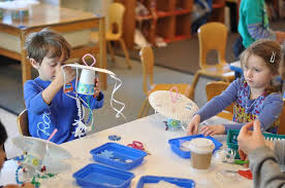
Creative Play
Is closely linked with Imaginative play , a whole range of growth is formed from this type of play , fine motor skills when gluing and sticking or threading beads on to a necklace. Being creative is all about expressing yourself so musical instruments, artwork , dancing, singing and craft activities will all help a child to find what they like and what they are good at.
Is closely linked with Imaginative play , a whole range of growth is formed from this type of play , fine motor skills when gluing and sticking or threading beads on to a necklace. Being creative is all about expressing yourself so musical instruments, artwork , dancing, singing and craft activities will all help a child to find what they like and what they are good at.
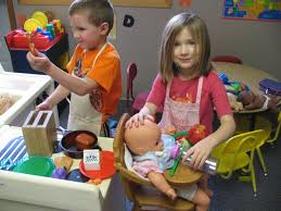
Imaginative Play
We instantly think of role play and fancy dress , which yes, is a huge part of this kind of play. It also includes small toys such as cars and farm animals, making up their own stories and filming their own play. This usually begins with children aged 3 upwards as it relies on being able to talk about the world, act out what adults do and express emotions. Imaginative play provides excellent opportunity for children to develop their language skills , problem solve and begin to use abstract thoughts.
We instantly think of role play and fancy dress , which yes, is a huge part of this kind of play. It also includes small toys such as cars and farm animals, making up their own stories and filming their own play. This usually begins with children aged 3 upwards as it relies on being able to talk about the world, act out what adults do and express emotions. Imaginative play provides excellent opportunity for children to develop their language skills , problem solve and begin to use abstract thoughts.
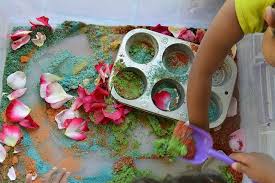
Sensory Play
This is talked about above in line with heuristic play, stimulate your child's senses ! All aspects of development can benefit from this kind of play as the child grasps with their fine motor skills , tastes the object , may develop language as they learn about colours or speak with another child about the object. Social skills can be improved as they learn to share the objects and talk to each other about how it feels. Children can benefit from being relaxed in a light room or 'plinky plonky' music to help settle a child.
This is talked about above in line with heuristic play, stimulate your child's senses ! All aspects of development can benefit from this kind of play as the child grasps with their fine motor skills , tastes the object , may develop language as they learn about colours or speak with another child about the object. Social skills can be improved as they learn to share the objects and talk to each other about how it feels. Children can benefit from being relaxed in a light room or 'plinky plonky' music to help settle a child.
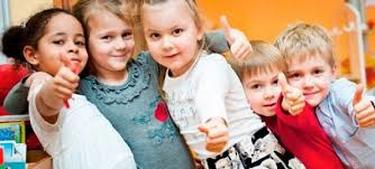
Social Play
Playing with others teaches children how to treat others. talking , caring , sharing , acting and understanding can not be learnt by playing alone. Interacting with each other will form friendships and familiarity where talking and having fun are as important as the actual game. A child who can play and understand another child's emotions and ideas will also learn about problem solving and team work, highly requested skills in adult life.
Playing with others teaches children how to treat others. talking , caring , sharing , acting and understanding can not be learnt by playing alone. Interacting with each other will form friendships and familiarity where talking and having fun are as important as the actual game. A child who can play and understand another child's emotions and ideas will also learn about problem solving and team work, highly requested skills in adult life.
